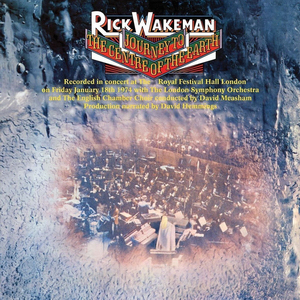A True Yunatic
Rick Wakeman didn’t just play keyboards – he turned them into a portal. Caped, wild-haired, and armed with stacks of synths and a devilish grin, he fused classical training with cosmic rock energy, making music that felt like it was scored for dragons, planets, and lost civilizations.
Best known as the keyboard wizard behind Yes, Wakeman wasn’t content to just play notes – he told stories with sound, turning stage shows into mythic adventures. He didn’t follow trends – he time-traveled past them in a glittering cape.
“I always believed music could take you somewhere. So I took people somewhere.” – Rick Wakeman
The Inner Child
Rick’s inner child? Still wide awake – and probably building a new synth rig as we speak. His music is full of wonder, humor, curiosity, and the joyful chaos of someone who never stopped playing. He treats stagecraft like a playground, and music like a toy box that never runs out of surprises.
Whether telling jokes in interviews or composing 15-minute epics about King Arthur, Rick keeps that mischievous sparkle alive.
Tribbles
Wakeman’s musical tribbles are grand, eccentric, and gloriously over-the-top:
- The Six Wives of Henry VIII – Synth-driven history with harpsichords and Hammond organs.
- Journey to the Centre of the Earth – A symphonic rock saga with full orchestra, choir, and imagination on fire.
- The Myths and Legends of King Arthur and the Knights of the Round Table – Prog rock meets medieval magic, performed (once) on ice.
Each album is a cinematic universe scored in keyboard flourishes and fantasy.

Connected with the Yuniverse
Rick doesn’t just play music – he channels it, as if the universe left its sheet music in his lap. His blend of theatricality, precision, and passion turns performance into interstellar storytelling.
“Music is limitless. Why put fences around it?” – Rick Wakeman
Is He Spiritual?
Rick’s spirituality is in his awe for sound, his love for creation, and his belief that music can transport us somewhere magical. Not solemn – but sacred in its joy. He reminds us that fantasy is a form of freedom.